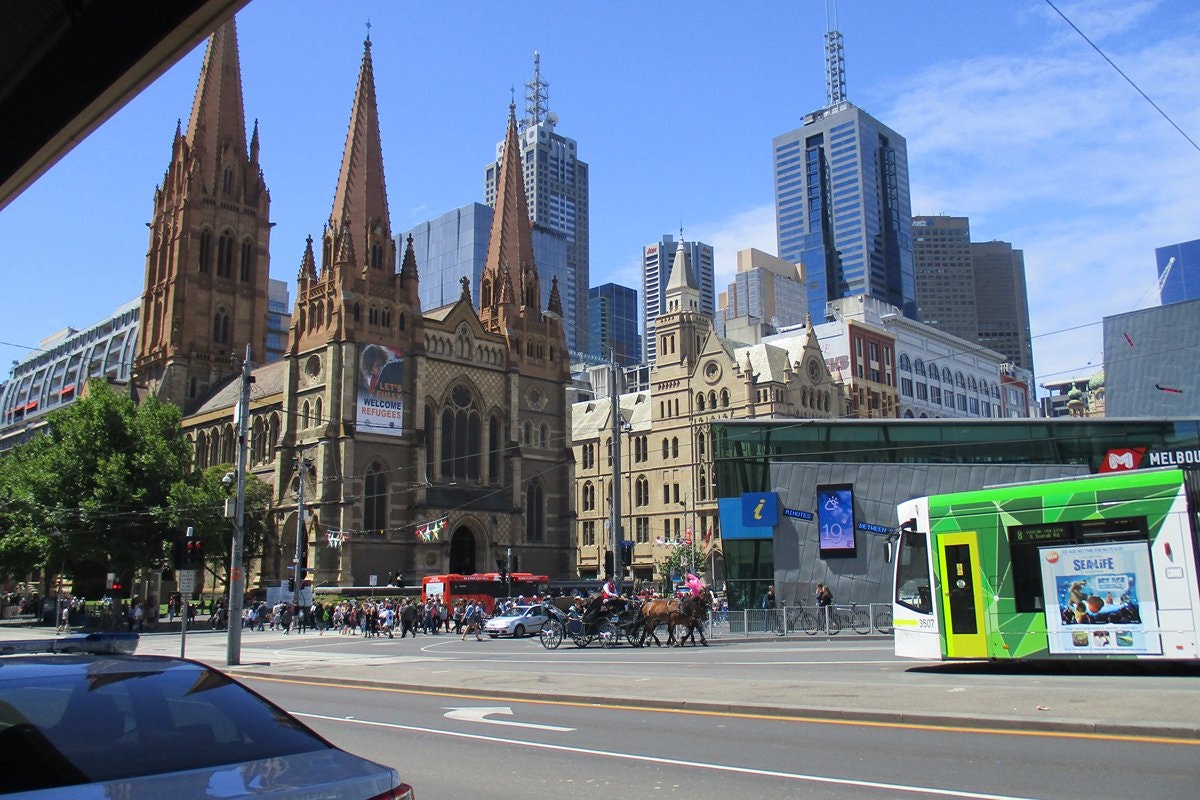A day in the life of an international student in Australia
Are you looking to study in Australia and not sure what to expect? Read on for an insight into a typical day and learn how interesting life could be as an international student in Australia!

By:
LINA AVILA HENAO
Last Updated:
Sep 21, 2024
Tags:
#study-australia #aussie-culture #learn-english
Have you been questioning yourself about how your days will pass in Australia now that you will become a student? You might have thoughts about how heavy or easy your English course is going to be?
Or perhaps you have wondered if you would do anything else in Australia apart from studying. Will you still have time to work or to have fun?
I had those same questions before embarking myself on one of the best adventures of my life! And let me tell you that you will have time for everything if you are organised.
In this mini post we will tell you how the life of an international student looks, however this can vary depending mainly on the type of course that you are doing.
If you are doing an English course
If you decide on doing an English course then you are committing to study at least one full morning or one afternoon from Monday to Friday. Depending on the school, sometimes they offer courses on the weekends but honestly this is not that common. The commitment for a full time student is 20 hours per week. It is expected that you also dedicate your time after school to do your homework and practice your learnings.
Be prepared to meet and interact with students of many nationalities. You will feel like in the school again, with books and notebooks but much cooler because it is in english!!!
I did a general english course for 8 months in an English college in Melbourne CBD. I had a great time there, meeting incredible friends from many countries that I am still in contact with. The time I spend everyday in the school was enough to allow me to absorb the knowledge from all the exercises and activities. The methodology was designed to raise interest in the students and keep the engagement for the full session.
Activities in the school
Classes are in general fun! The methodology might vary depending on the course but the teachers make an effort to keep you engaged with the topics. You will be practicing all the language skills, and with this I am referring to reading, listening, writing and speaking.
Sometimes the school programs outdoor activities to practice English outside the classroom and to promote the engagement between students, for example, in summer a BBQ or a picnic in the botanical gardens are common activities. In winter it is time to go museums, exhibitions or ice skating.
If you are doing a certificate or a diploma
In these courses you will find that you wont need to come everyday to class but still you have assignments to do in your own time. These assignments can be time consuming and you will need to put effort on them.
There are no “evaluaciones” o “parciales” but there are a lot of assignments such as reports, essays, study cases, planning models and this depends on your type of course and how many subjects you are studying. You will have some group assignments and sometimes you will have to set up a meeting with your classmates outside the school hours but this is not all the time.
Here you will have a bit more time for yourself but you need to be very organised and disciplined with your self study to make it work.
Remember that any assessments/essays & reading homework will be in english, so things that seemed fast/easy back home will take you longer than you think to complete.
I studied a diploma and an advanced diploma in Project Management in an institute. I was attending the classes three times a week for part of the morning, which was a really accommodating schedule. However, I had a series of assignments to develop outside the class.
How is the work aspect?
International students are allowed to work 24 hours per week. This actually complements well with the time you spend at the school. So, if you study in the morning, you will be looking for a job in the afternoon or in the evening. Remember to always leave some time aside for doing your english homework or your assignments.
In my case, my english school was from 8 am to 1 pm Monday to Friday, in the CBD. Not long after I arrived, I found a job cleaning in a school from 3:30pm to 7:30pm also Monday to Friday, and despite it was in a far away suburb from where I was living, I considered myself lucky because I could have the weekends off for studying and also I had some time to get to know the city itself.
Do I have time to have fun?
Probably at the beginning your classmates from the English school will be your mates for outside class activities. Sometimes this means going for a beer on a friday night, going to the movies, going to the shops to “window shop” or to actually buy something.
Sometimes the group can organize to eat a meal in one of the many restaurants that the city has to offer. You can try Indian food if you haven’t already, Thai food, Korean chicken, Middle Eastern food, Greek food, Italian food, even a little piece of African food. You can have fun on your own as well! In Australia it is OK to go to the cinema on your own or have a meal on your own.
The fun side of the experience depends on the job you have. If you have a job on the weekends then your free days will be during the week. You will see that in the big cities there is always something going on, bars and restaurants are open, however some shops tend to close early.
There are lots of green areas around the cities in Australia, so you can go on walks, exercise or have a picnic. There are plenty of circuits to cycle or even options to go to your school or work place on a bike.
If you like dancing and you feel that it is part of your weekend ritual you can have a dance! The main cities in Australia have latin bars, so you can also have that in Australia. Remember that the idea is to meet people from other countries to practice your (aussie!) English and learn more about other cultures.
There are day tours departing from the cities to go to places such as wineries, zoos, hot springs or nearby attractions that you can book in advance. There are ways to go to some of them in public transport but you will need to do your research.
With the passage of time you will expand your friends network and then you will be like a fish in the water with all this stuff. You will understand the city better, you will change jobs, you will recommend people in your current role and slowly you will start to escalate in your english levels, in your jobs and friendships.
At the beginning I met a group of Japanese students in my class so I spent the first months socialising with them, learning a bit about their culture and seeing the Japanese food scene in Melbourne. Then a few other friends from other nationalities joined the group and we organised trips to the nearby wineries, or nearby towns on the weekends.
Often the plan was eating Lebanese food in a suburb nearby the city or just a simple picnic in the Royal Botanical Gardens with the option to try homemade food from your classmates from different parts of the world.
You will have also time to network
You will have time to attend free "Meetups" related to your career and meet new and interesting people. You also will have time to see how the panorama is related to different jobs related to your career. If you are interested in staying in Australia and starting an immigration path, start as soon as you arrive to prepare yourself for the opportunity.
You will have time to appreciate and experience Australian culture!
Once you are on board with studying and working your days are going to pass very fast. However, you will have spaces where you can go for a brunch with your friends, and see how strong is the coffee culture in cities like Melbourne or how common it is to eat avo on toast!.
Perhaps you are more the sport type of person so there are many sports happening in Australia all year round, some of them can be new for you!!. For example footy games, rugby and cricket.
To finalize
Being an international student in Australia is a very nurturing experience for your personal and professional life. It is definitely an enormous change to your routine and to your day to day activities.
Remember that it depends on you, on your effort and perseverance how fruitful it is going to be. When you come back to your home country (if you do) you will notice that you will not be the same person.


